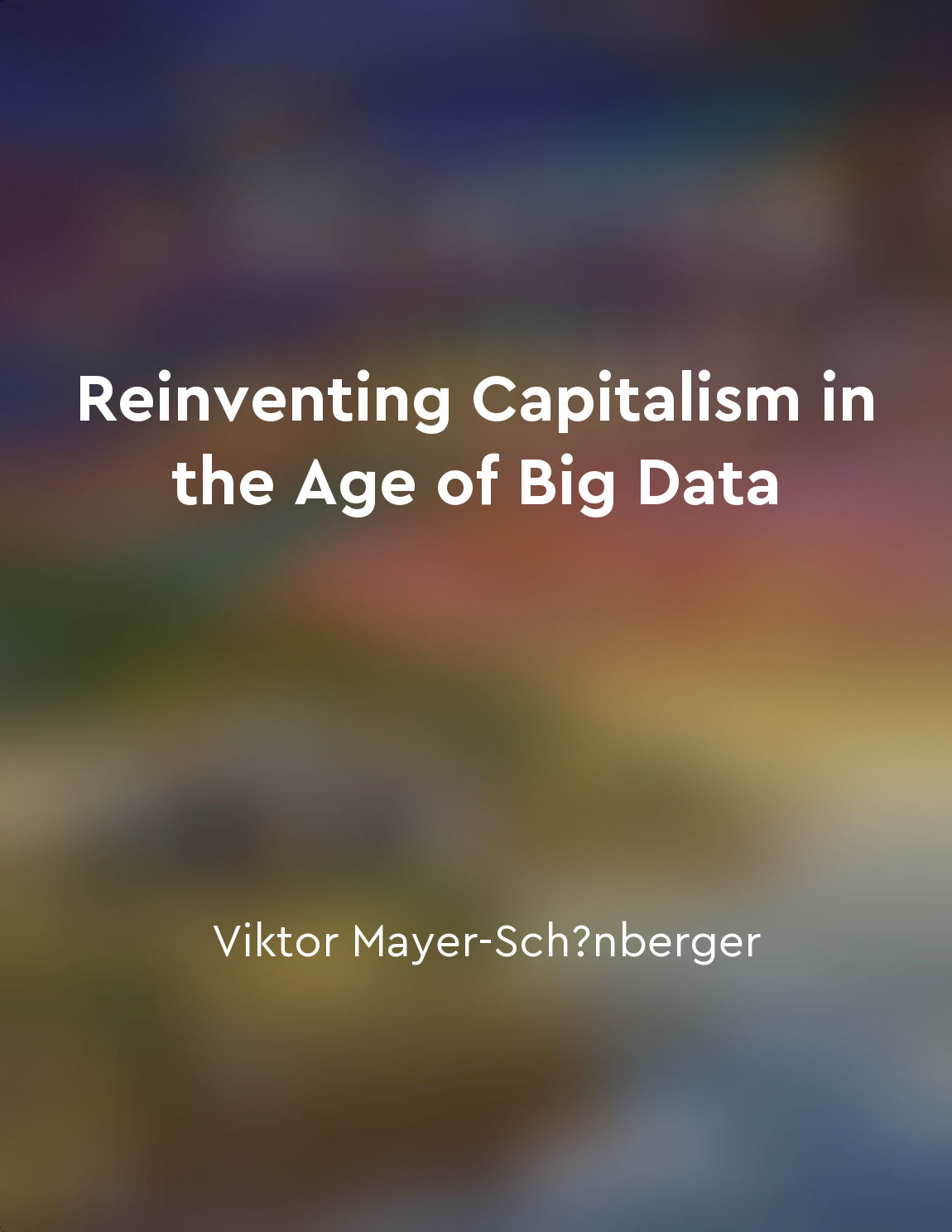Data ownership and control are important issues to address from "summary" of Reinventing Capitalism in the Age of Big Data by Viktor Mayer-Schönberger,Thomas Ramge
Data ownership and control are crucial concerns that must be carefully considered in the age of big data. In the past, individuals had a clear understanding of what belonged to them and what did not. However, the advent of big data has complicated this notion, blurring the lines of ownership and control. Traditionally, ownership was tied to physical possessions, making it easy to determine who had the rights to a particular item. In the digital realm, however, ownership is not as straightforward. Data is intangible, making it challenging to define who truly owns it. This lack of clarity has significant implications for individuals and society as a whole. Control is another key issue that must be addressed when it comes to data. With the rise of big data, companies and governments have unprecedented access to vast amounts of information about individuals. This raises concerns about privacy and autonomy, as individuals may not have control over how their data is used and shared. Furthermore, the concentration of data in the hands of a few powerful entities poses risks to competition and democracy. When a small number of players control the majority of data, they have the ability to shape markets and influence political outcomes. This consolidation of power underscores the importance of establishing clear frameworks for data ownership and control. In order to address these challenges, it is essential to develop policies and regulations that protect individuals' rights to their data. By establishing clear rules around data ownership and control, society can ensure that individuals retain autonomy over their personal information. This will help to mitigate the risks associated with the unchecked proliferation of big data and promote a more equitable and democratic society.Similar Posts
Gender norms impact online behavior
In the online world, gender norms play a significant role in shaping how people behave. Men and women often conform to societal...

Personal data has become a valuable commodity in the digital economy
In the digital age, our personal data has taken on a new significance that goes far beyond mere information about ourselves. It...

Information should not be free
The idea that information should not be free may seem counterintuitive in a world where we have grown accustomed to accessing v...
There are implications for personal freedom
The mass collection of personal data has far-reaching consequences for individual freedoms. When governments and corporations a...
Understanding is becoming more elusive
In our current age of big data, the pursuit of understanding is becoming increasingly difficult. The sheer volume of informatio...
There are implications for personal freedom
The mass collection of personal data has far-reaching consequences for individual freedoms. When governments and corporations a...

The current digital economy exploits ordinary people's data for profit
In our digital economy, data is often referred to as the new gold. Companies accumulate vast amounts of personal information fr...
The 2020s will be a time of both turmoil and transformation
The coming decade promises to be a period of significant upheaval and change. As we enter the 2020s, we are faced with a range ...
Privacy is essential for democracy
Privacy is essential for democracy. Without privacy, we lose the ability to speak freely, to think for ourselves, and to act in...

